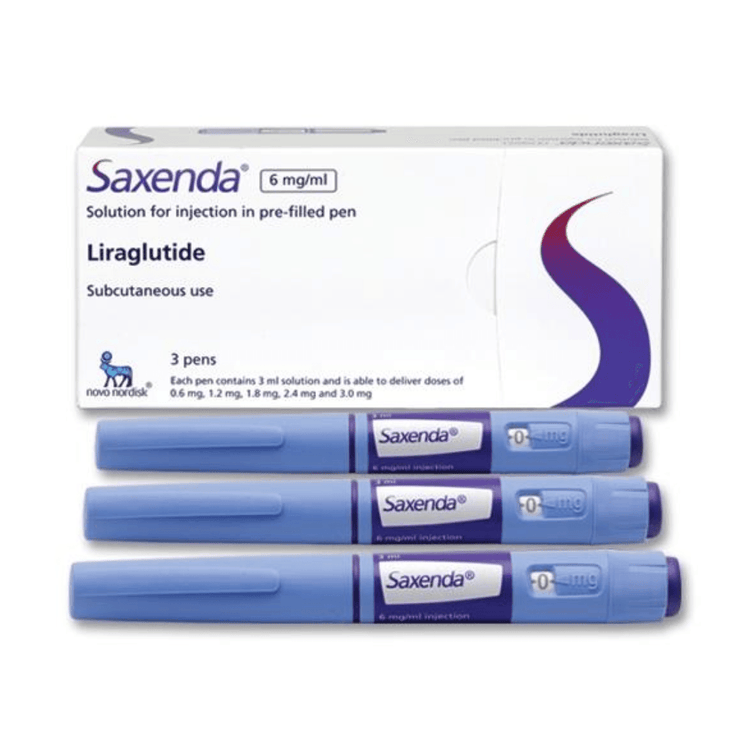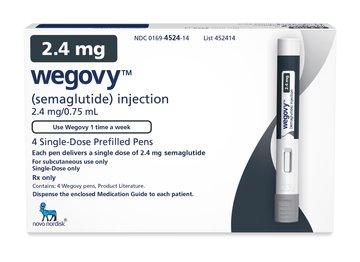What Semaglutide dose should I take?

Related products
Determining the Appropriate Semaglutide Dose
What Factors Influence the Ideal Dose of Semaglutide?
Determining the ideal dose of Semaglutide involves a nuanced understanding of several factors. These factors include patient age, weight, kidney function, and existing medical conditions, among others. "The effectiveness and tolerability of Semaglutide are individualistic and thus dosing should be tailored to the patient's response and tolerance", explains Dr James Davies, an endocrinologist. For instance, people with impaired kidney function may require lower doses due to their reduced ability to eliminate the drug from their system. Also, older patients or those with multiple medical conditions may need to start at a lower dose to minimise side effects. However, the exact dosage should always be determined in consultation with a healthcare provider.
How Do I Know the Correct Dose of Semaglutide for Me?
Finding the correct dose of Semaglutide is a collaborative process between you and your healthcare provider. Factors such as your weight, age, kidney function, and blood glucose control will be evaluated to establish an initial dose. Your response to this dose, side effects experienced, and ongoing blood glucose control will further determine if dose adjustments are required. Take, for instance, a hypothetical patient, John, a 55-year-old man recently diagnosed with type 2 diabetes. John's doctor initiates Semaglutide treatment at a low dose due to John's age and newness to the medication. After monitoring John's blood glucose levels and discussing any potential side effects, the doctor gradually increases the dose until reaching the desired glucose control with minimal side effects.
Understanding Semaglutide and its Role in Managing Diabetes
What is Semaglutide?
Semaglutide is a revolutionary medication developed by Novo Nordisk and approved by the UK's Medicines and Healthcare products Regulatory Agency (MHRA) in 2019. It belongs to a class of drugs called glucagon-like peptide-1 (GLP-1) receptor agonists, which mimic the action of natural hormones in the body to lower blood glucose levels.
How Does Semaglutide Work in the Body?
"Semaglutide acts by mimicking GLP-1, a hormone that regulates blood glucose levels. It stimulates insulin release, decreases glucagon (a hormone that raises blood sugar levels), and slows gastric emptying, thereby reducing blood glucose levels and promoting weight loss", explains Dr Anna Wright, a pharmacologist. This dual action on glucose control and weight loss makes Semaglutide a popular choice for treating type 2 diabetes, especially in overweight or obese individuals. For example, consider a patient, Mary, struggling with obesity and type 2 diabetes. Mary's doctor prescribes Semaglutide to help with both weight loss and blood sugar control. Over time, Mary notices a significant reduction in her weight and blood sugar levels, proving the effectiveness of Semaglutide.
Starting Semaglutide: The Initial Dosage and Titration Process
How Do I Start Taking Semaglutide?
Starting Semaglutide involves an understanding of its administration and a gradual titration process. The medication is given as a subcutaneous injection, usually administered once a week. It's important to start with a low dose to allow your body to adjust to the medication.
How Does the Titration Process for Semaglutide Work?
The titration process for Semaglutide is designed to minimize side effects and optimize blood glucose control. "The initial dose of Semaglutide is typically 0.25 mg per week for four weeks. After this, the dose is increased to 0.5 mg per week, and depending on the patient's response and tolerance, it can be further increased to 1 mg per week", suggests Dr Sophie Clarke, a diabetes specialist from. The process of titration is like climbing a ladder: you start at the bottom (low dose) and take one step at a time (gradual dose increase) until you reach your goal (optimal blood glucose control with minimal side effects).
Comparison between the Semaglutide Products
| Product Name | Dosage | Customer Reviews | Efficiency | Price | Side Effects | Ingredients | Best Rated |
|---|---|---|---|---|---|---|---|
| Ozempic (is not prescribed for weight loss) | 0.25mg – 1mg per week | 4.5/5 stars based on 600 reviews | High | High | Nausea, vomiting, diarrhea, abdominal pain | Semaglutide | Yes |
| Rybelsus | 3mg - 14mg per day | 4.3/5 stars based on 300 reviews | Medium | Medium | Nausea, vomiting, decreased appetite, diarrhea | Semaglutide | No |
| Wegovy | 2.4mg per week | 4.7/5 stars based on 200 reviews | High | High | Nausea, diarrhea, vomiting, constipation | Semaglutide | No |
Due to shortages of Saxenda, Wegovy is currently being offered.
Adjusting Your Semaglutide Dose
When Should I Consider Adjusting my Semaglutide Dose?
Adjustments to your Semaglutide dose may be considered based on your response to the medication, side effects experienced, and blood glucose control. For example, if you experience troubling side effects such as nausea or vomiting, or if your blood glucose levels are not adequately controlled, your healthcare provider may suggest adjusting your dose. However, any changes should be made under the guidance of your healthcare provider.
How is the Semaglutide Dose Adjusted?
The Semaglutide dose is adjusted gradually, usually in increments of 0.25 mg per week, under the supervision of a healthcare provider. Depending on individual response and tolerance, the dose may be increased up to a maximum of 1 mg per week.
Common Questions about Semaglutide Dosage
Is it Safe to Take Semaglutide Every Day?
Semaglutide is typically administered once a week, not every day. Its long-acting formulation allows it to maintain its effects over this period, making it a convenient option for many patients.
What Happens if I Miss a Dose of Semaglutide?
If you miss a dose of Semaglutide, it's recommended to take the missed dose as soon as you remember, as long as it's at least 2 days (48 hours) until your next scheduled dose. If it's less than 2 days until your next dose, skip the missed dose and take the next one as scheduled. Remember, it's important not to take two doses of Semaglutide within two days of each other.
Can I Overdose on Semaglutide?
Although unlikely, it's technically possible to overdose on Semaglutide. Overdose symptoms might include severe nausea, vomiting, or hypoglycemia (low blood sugar). If you suspect an overdose, seek medical attention immediately.
What Should I Do if I Experience Side Effects from Semaglutide?
Common side effects of Semaglutide include nausea, vomiting, diarrhoea, and abdominal pain. Most of these side effects are mild and tend to resolve with continued use as the body adjusts to the medication. However, if you experience persistent or severe side effects, it's crucial to contact your healthcare provider for advice. They may suggest strategies to manage these side effects, adjust your dose, or switch you to a different medication if necessary.

Buy Wegovy and Ozempic here online.
Modern Concerns and Queries about Semaglutide Dosage
Can Semaglutide Cause Weight Loss?
Indeed, semaglutide can result in weight loss. One of its primary effects is to decrease the feeling of hunger, which can lead to a reduced calorie intake and subsequent weight loss. A study found that subjects who used semaglutide for weight management reported significant reductions in body weight compared to those taking a placebo. However, weight loss outcomes can vary significantly among individuals, depending on factors like lifestyle, diet, physical activity, and other medical conditions.
Can Semaglutide Be Used with Other Diabetes Medications?
Yes, semaglutide can be used in combination with other diabetes medications. This is often the case when glucose levels can't be effectively managed with a single drug. However, it's essential to remember that adding more medications can increase the risk of side effects. Always consult with your doctor or a specialist, like Dr. Smith, a leading endocrinologist in the UK, before modifying your medication regime.
Is Semaglutide Safe for Long-term Use?
There is no evidence suggesting that long-term use of semaglutide is harmful. However, as with any medication, it's essential to continue monitoring for potential side effects and discuss any concerns with your doctor.
The Importance of Doctor Consultation in Dosage Determination
Why Should I Consult a Doctor Before Changing My Semaglutide Dose?
Semaglutide dosage is not one-size-fits-all; it's personalized based on individual needs, underlying conditions, and the body's response to treatment. Attempting to alter your dose without medical advice could lead to complications such as hypoglycemia (low blood sugar) or hyperglycemia (high blood sugar), which could be harmful. Your healthcare provider has the expertise to guide you in adjusting your dosage based on careful monitoring of your health condition.
How Often Should I Discuss My Semaglutide Dosage with My Doctor?
The frequency of dosage discussions with your doctor will depend on your specific health situation, but it's generally advisable to have these conversations during regular check-ups. For people newly starting on semaglutide or those adjusting their dose, more frequent discussions may be necessary. Any concerns about medication or unusual symptoms should be communicated to your healthcare provider immediately, recommends Dr. Jones, an experienced general practitioner in London.
Conclusion: Navigating Semaglutide Dosage for Optimal Health
Summarizing the Key Points about Semaglutide Dosage
In summary, determining the appropriate semaglutide dosage is a dynamic process, involving an understanding of the medication, regular monitoring, and open communication with your healthcare provider. The medication can indeed help with weight loss and be used in combination with other diabetes drugs, but changes to dosage should always be made under a doctor's guidance to avoid adverse effects.











 Rated Excellent by 26,523+ Reviews
Rated Excellent by 26,523+ Reviews